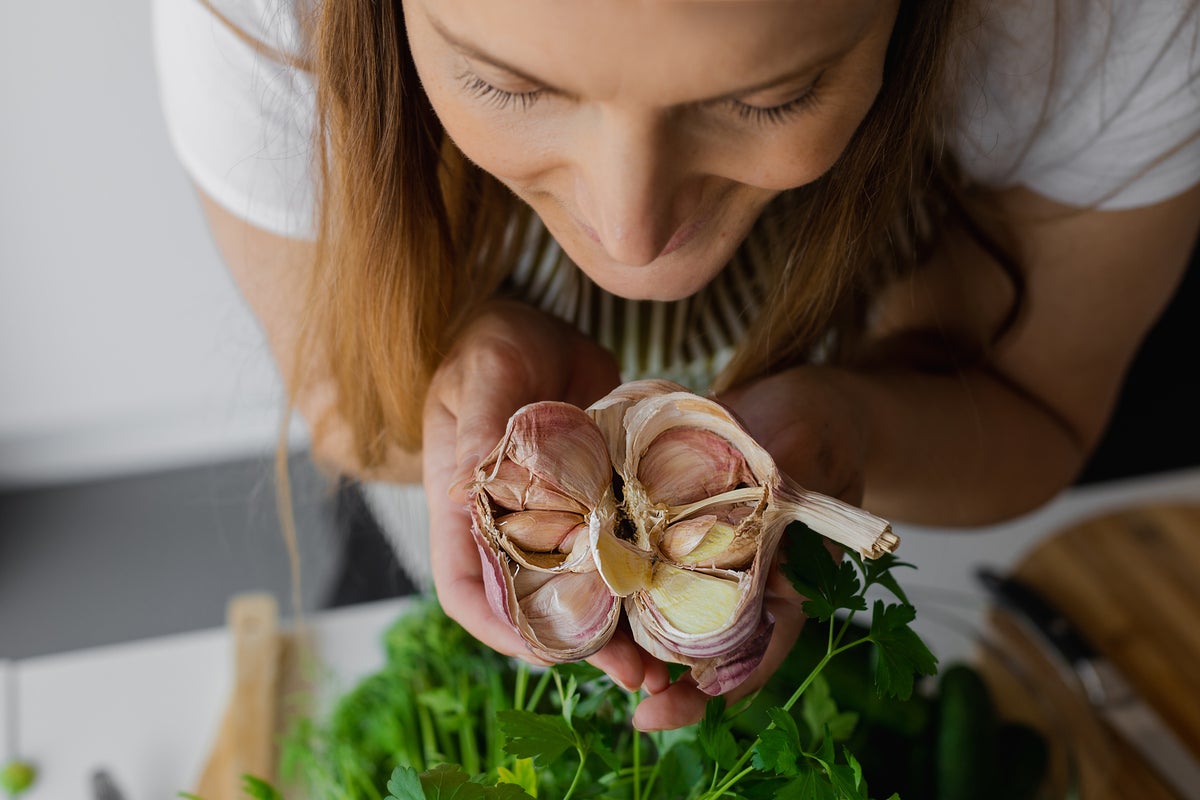
It’s hard to resist garlic sometimes, but its pungent smell can often last long on the tongue and what better way to get rid of it than good old yoghurt?
Garlic contains a compound called sulfur volatiles that can cause a bad odour after being eaten.
Researchers wanted to better understand how yoghurt and its components can eliminate or reduce such strong odours.
For the study, researchers from the Department of Food Science and Technology at Ohio State University, Columbus tested the garlic deodourising capabilities of yoghurt and its individual components of water, fat and protein to see how each stood up to the smell.
As a result, the team found both fast and protein were effective at trapping garlic odours, leading the scientists to suggest high-protein foods may one day be formulated specifically to fight garlic breath.
“High protein is a very hot thing right now – generally, people want to eat more protein,” said senior study author Sheryl Barringer, professor of food science and technology at the university.
“An unintended side benefit may be a high-protein formulation that could be advertised as a breath deodorizer in addition to its nutritional claims,” she said.
“I was more excited about the protein’s effectiveness because consumer advice to eat a high-fat food is not going to go over well.”
In the lab experiment, researchers placed equal amounts of raw garlic in glass bottles and confirmed the smell of the garlic was released in concentrations that would be detected by the human nose.
Scientists measured the levels of volatile molecules in gaseous form present before and after each treatment.
It was revealed that garlic alone reduced 99 per cent of the major odour-producing raw garlic volatiles.
When introduced separately, the fat, water and protein components of yoghurt also had a deodorising effect on raw garlic, but results showed fat and protein performed better than water.
Looking at fat’s performance, a higher quantity of butter fat was more effective at deodorisation.
The proteins which were studied included different forms of whey, casein and milk proteins, all of which were effective at deodorising garlic. This may be because of their ability to trap the volatile molecules before they are emitted into the air.
A casein micelle-whey protein complex performed the best.
“We know proteins bind flavour – a lot of times that’s considered a negative, especially if a food with high protein has less flavour. In this case, it could be a positive,” Barringer said.
Additional experiments that involved changing the pH of the yoghurt to make it less acidic (4.4 pH to 7 pH) actually appeared to lower the yoghurt’s deodorisation effect on the garlic.
However, changing the pH of water did not seem to make any difference on the water’s deodorization effect.
“That’s telling me it goes back to those proteins because as you change pH you change the configuration of proteins and their ability to bind. That said we definitely should be looking at these proteins,” Barringer said. “It probably depends on the protein, as well, because different proteins react differently to pH. So that may be an important thing as we look at other proteins for their garlic deodorization effect.”
The team also tested the deodorising effect of yoghurt and its components on fried garlic, in the process they found that drying garlic alone can significantly reduce garlic odour.
Yoghurt and its individual ingredients neutralised a lower percentage of volatile compounds of fried garlic compared to raw garlic. Study authors think this may be because there were fewer volatiles to trap than were present in the raw cloves.
The findings have provided a foundation for future studies on proteins that might help fight the garlic breath.
In the meantime, Barringer predicts that Greek yoghurt, with a higher protein profile than the whole milk plain yoghurt used in the study, may be particularly effective at getting rid of garlic breath.
Fruit-flavoured yoghurts will probably work, too, she said – and whatever is used, it must quickly follow ingestion of raw garlic. “With apples, we have always said to eat them immediately,” she added.
“The same with yoghurt is presumed to be the case – have your garlic and eat the yoghurt right away.”
The study was published in the journal Molecules.











